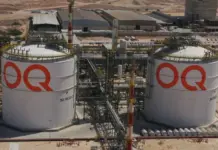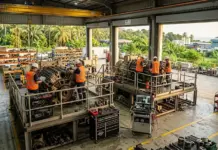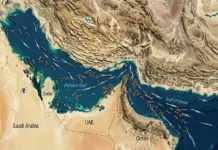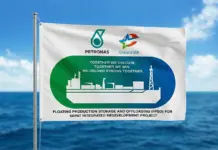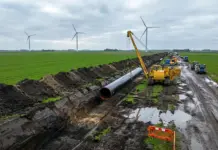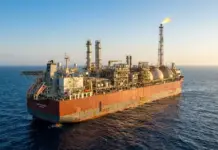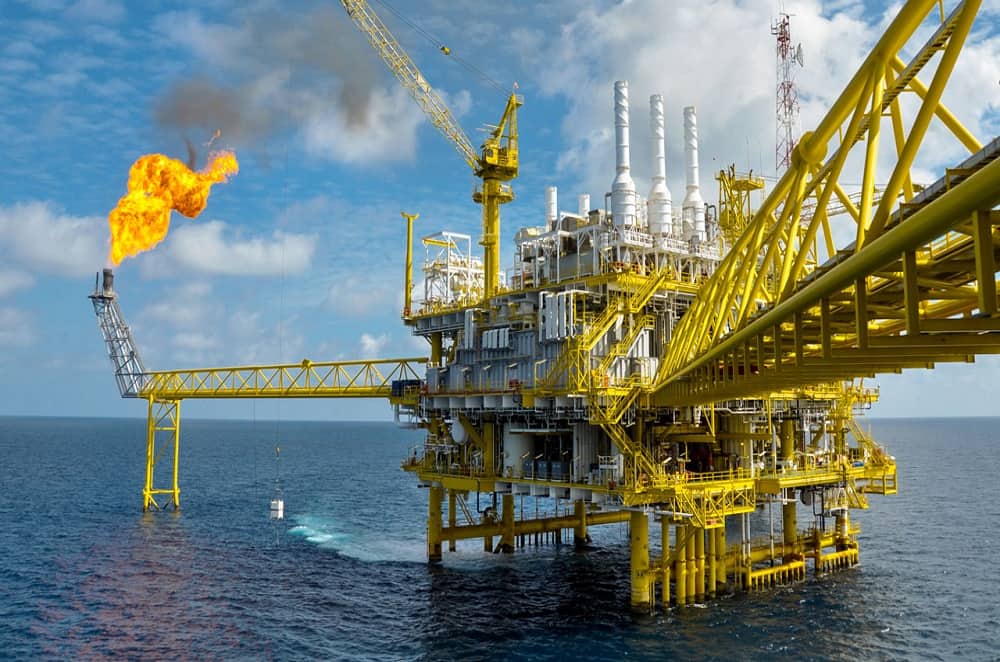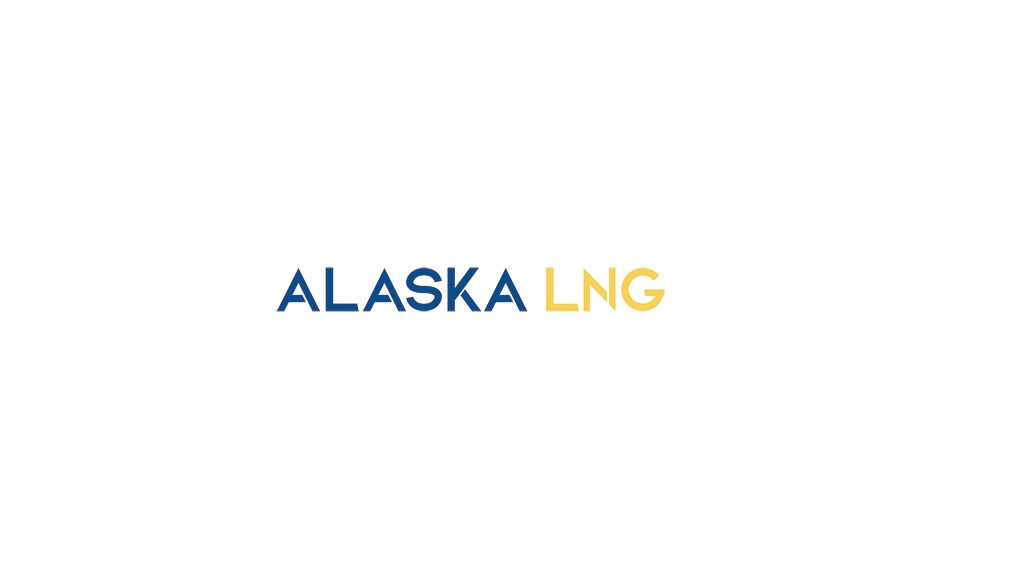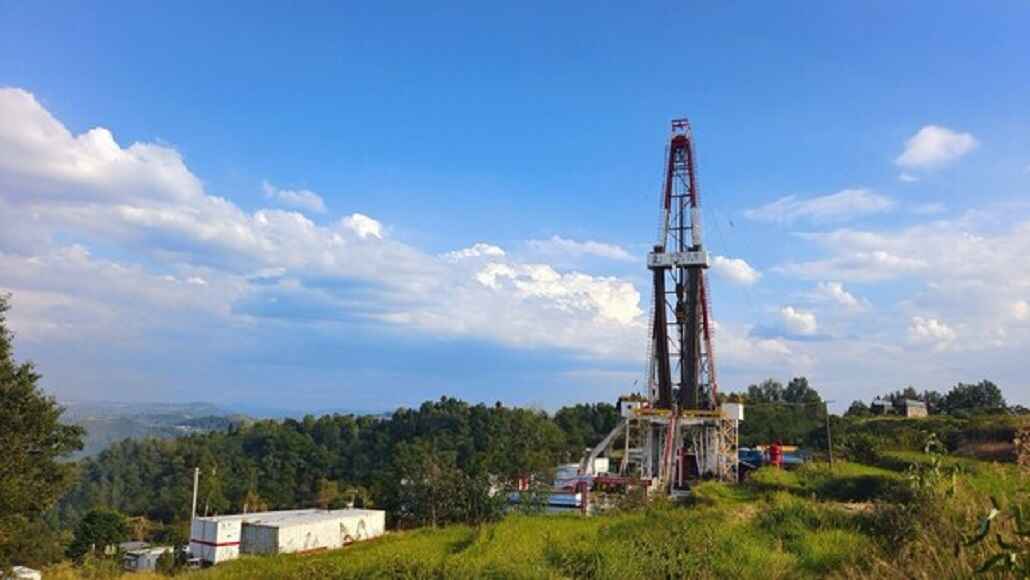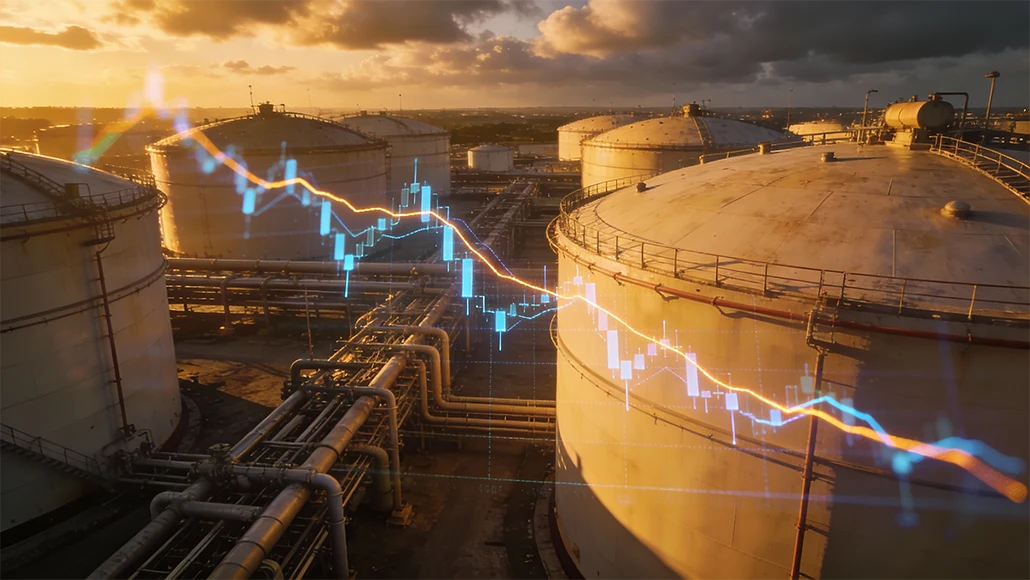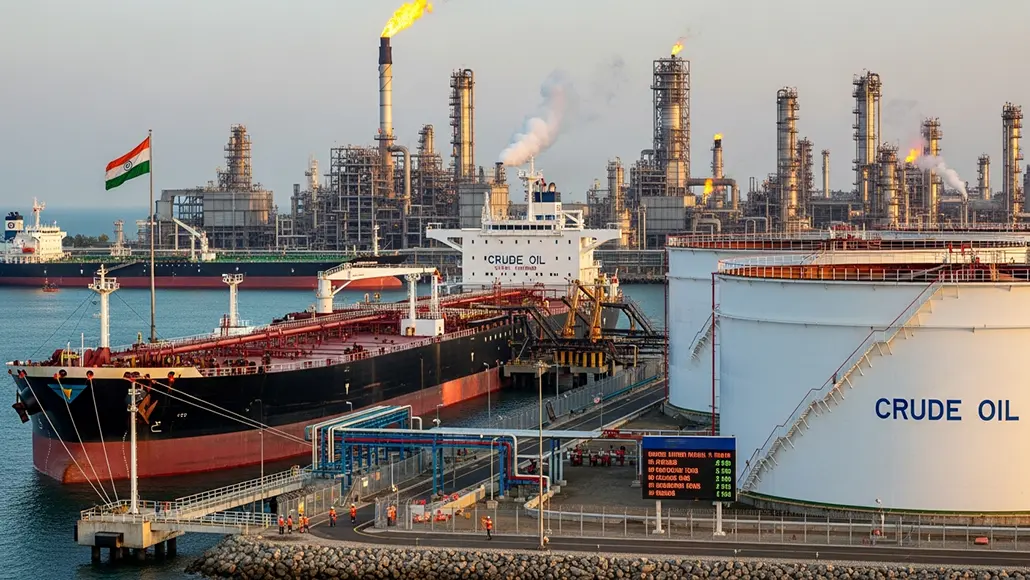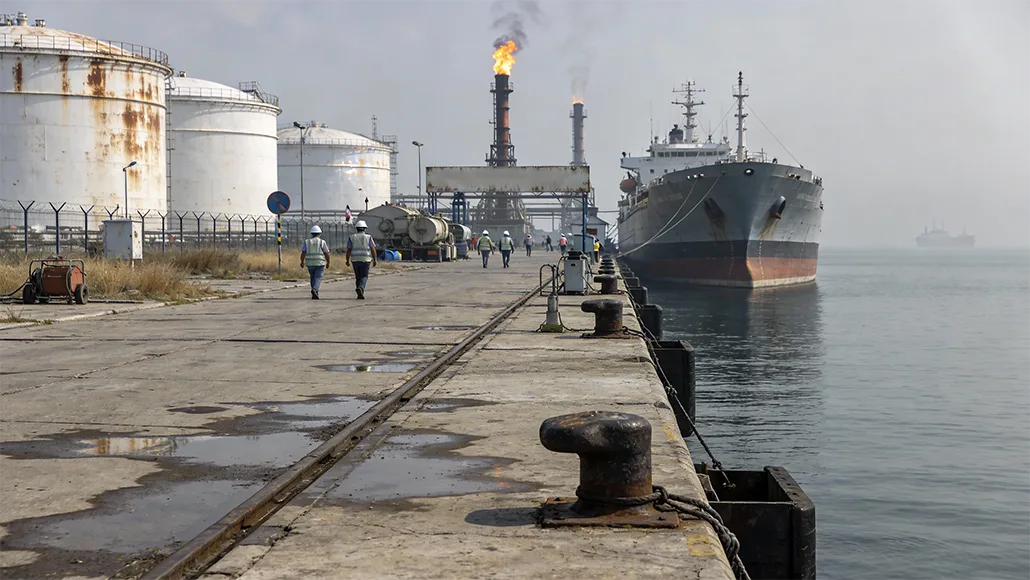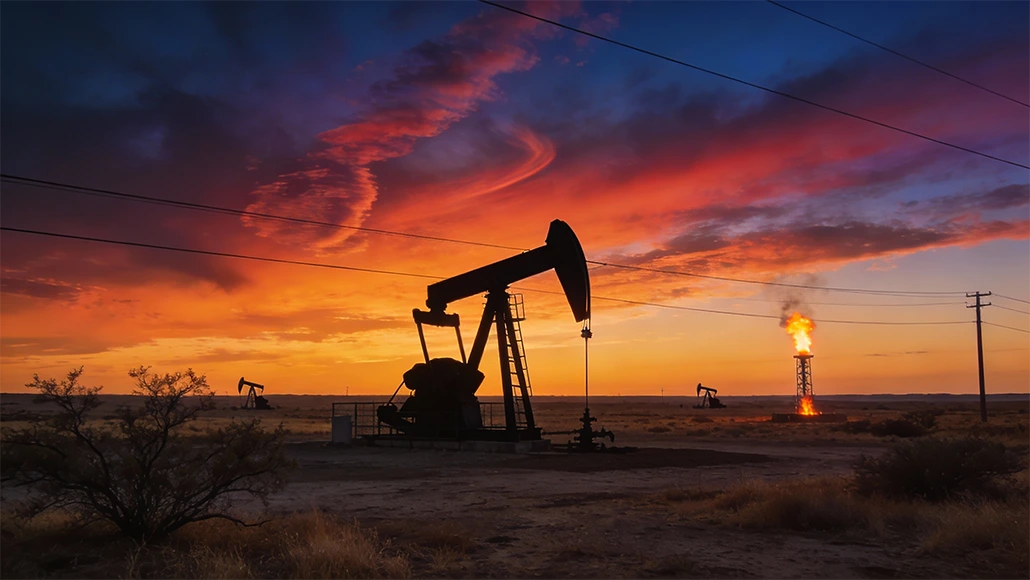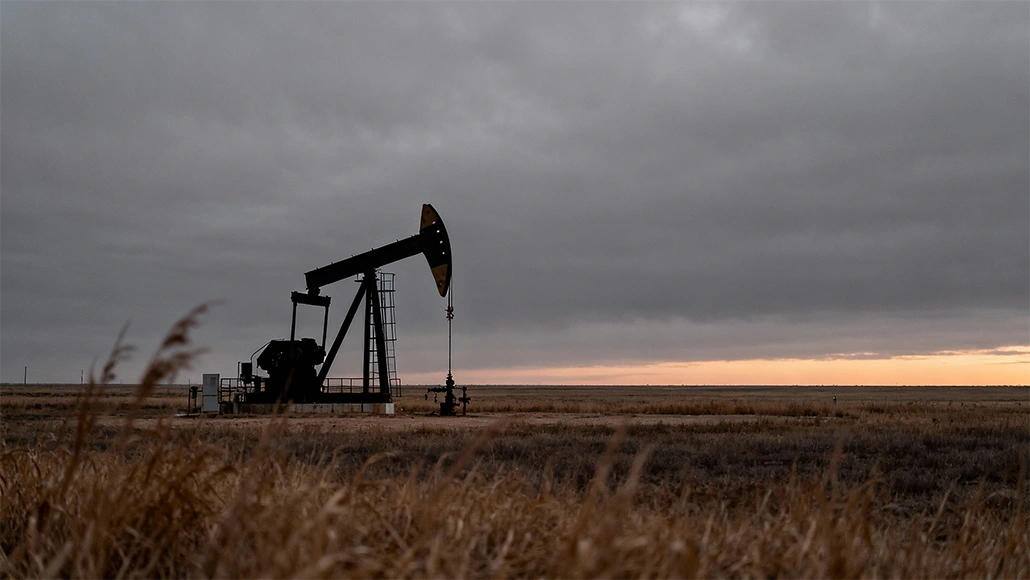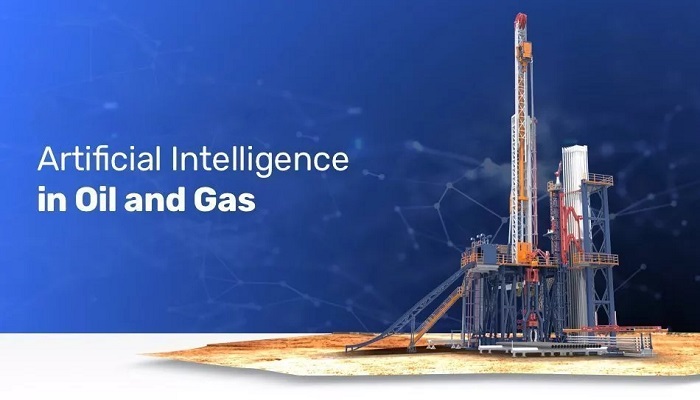By the year 2028, the utilization of artificial intelligence (AI) in the oil and gas industry is projected to reach a market value of $4.21 billion, with a steady compound annual growth rate (CAGR) of 12.09%. AI’s capacity to analyze extensive data sets and glean insights from patterns is driving a profound transformation in how companies within the oil and gas sector operate. It is reshaping the industry landscape, from preventing costly equipment failures through predictive maintenance to optimizing supply chains for seamless operations.
Let’s delve into six compelling applications and advantages of artificial intelligence in the oil and gas sector, emphasizing its profound impact on the industry.
Revolutionizing Oil and Gas Operations with AI Integration
Top 6 Use Cases of AI in the Oil and Gas Industry
Artificial intelligence in the oil and gas field is paving the way for diverse applications, expanding the horizons of this sector. In this article, we present the top nine applications of AI in the oil and gas industry.
1. Exploration
The quest for new oil reserves has historically been a challenging and expensive endeavor, with geologists and exploration teams encountering numerous hurdles. However, the emergence of AI in oil and gas exploration has ushered in a new era of efficiency and precision, revolutionizing how companies search for and discover hydrocarbon resources.
AI and machine learning in the oil and gas industry are transforming exploration processes by analyzing extensive data sets, including seismic surveys, well logs, satellite imagery, and geological data. Machine learning algorithms can identify patterns and anomalies in this data, aiding geologists in pinpointing potential oil reservoirs more effectively.
Imagine a scenario where an exploration team seeks to identify offshore drilling sites. Instead of relying solely on conventional geological methods, they employ AI applications in the oil and gas industry. The AI system assimilates data from various sources and conducts intricate analyses to identify areas with the highest likelihood of containing oil reserves.
This targeted approach reduces exploration time and costs while minimizing environmental impact through drilling only in high-potential areas. AI also enhances the interpretation of seismic data, a crucial aspect of oil exploration.
Furthermore, artificial intelligence in oil and gas exploration offers benefits beyond new discoveries. By optimizing existing fields, companies can boost production rates and extend the lifespan of mature assets.
The integration of AI in oil and gas exploration has elevated the industry’s capabilities, making the search for new reserves more efficient and reliable.
2. Predictive Maintenance
Predictive maintenance, fueled by artificial intelligence in oil and gas, is reshaping how companies manage their assets, ensuring greater reliability and decreased operational risks.
Traditionally, maintenance practices in the industry have been reactive or scheduled at fixed intervals, which can lead to unnecessary maintenance or unexpected equipment breakdowns. However, with AI solutions in the industry, companies can now analyze vast amounts of sensor data, historical maintenance records, and real-time operational data to predict equipment failures before they occur, a concept known as predictive maintenance.
Imagine an offshore oil rig equipped with numerous pumps, compressors, and drilling machinery. Utilizing AI for oil and gas, the rig’s sensors continuously monitor the condition of these critical components.
Machine learning algorithms analyze this data to detect patterns and alert teams about potential malfunctions. By identifying early warning signs, the rig’s operators can proactively schedule maintenance activities, replacing components before they fail and avoiding costly downtime.
The application of AI in the oil and gas industry extends beyond offshore rigs. Oil refineries and pipelines also benefit from predictive maintenance. With machine learning algorithms continuously analyzing data from the refining process or monitoring the structural integrity of pipelines, companies can optimize maintenance schedules, extend equipment lifespans, and enhance safety standards.
Machine learning in the oil and gas industry is revolutionizing maintenance practices, shifting the industry from reactive to proactive strategies.
3. Safety
Health, safety, and environmental considerations are of paramount importance in the oil and gas sector. The integration of AI in the oil and gas industry is bringing about a transformative impact on safety practices, ensuring safer operations.
AI solutions for oil and gas are enhancing safety through predictive maintenance. By continually monitoring equipment health and performance, AI algorithms can detect anomalies and potential failures before they escalate into safety hazards. This proactive approach enables companies to schedule maintenance and replacement activities, mitigating the risks of accidents and fostering a safer working environment for employees.
Furthermore, AI applications in the oil and gas industry enable real-time safety monitoring. AI-powered sensors track environmental conditions, equipment performance, and personnel activities in offshore drilling operations. The data is instantly analyzed, and in case of any safety deviations, immediate alerts and corrective actions are triggered, preventing potential incidents and improving emergency response.
Artificial intelligence’s role in the oil and gas sector also extends to the transportation of oil and gas products. AI assists in optimizing transportation routes, reducing the risk of accidents during the transportation of hazardous materials. By analyzing traffic data, weather conditions, and road infrastructure, AI solutions for oil and gas help companies identify safer and more efficient transportation routes.
The integration of AI in the oil and gas industry represents a game-changer in enhancing safety for personnel working in the sector.
4. Regulatory Compliance
Meeting regulatory compliance requirements is a critical aspect of the oil and gas industry, and artificial intelligence in oil and gas is playing a pivotal role in ensuring companies adhere to complex and evolving regulations.
One of the primary challenges of regulatory compliance is managing vast amounts of data and staying up-to-date with changing rules and standards. The use of AI in the oil and gas industry addresses this challenge by automating data collection and analysis. Machine learning algorithms can sift through extensive documents and datasets, extracting relevant information and highlighting areas that need attention to meet regulatory requirements.
For instance, consider an oil company faced with new environmental regulations. AI-powered systems can swiftly assess the company’s current practices and identify gaps that need to be addressed for compliance. This enables the company to implement necessary changes and ensure adherence to the latest environmental standards.
AI is aiding in risk assessment and management, which is crucial for regulatory compliance. AI algorithms can analyze historical data on safety incidents, environmental breaches, and operational disruptions to predict and prevent potential compliance risks.
Additionally, AI-driven analytics can monitor operations in real-time, providing continuous compliance monitoring. Any deviations from regulatory standards can trigger immediate alerts, enabling companies to take corrective actions promptly.
By automating data analysis, improving risk assessment, and providing real-time monitoring, AI empowers companies to address compliance challenges proactively. Embracing AI in the oil and gas industry is a strategic move toward a more compliant, responsible, and sustainable future for the sector.
5. Supply Chain
The oil and gas industry is witnessing a significant transformation in supply-chain management, courtesy of artificial intelligence (AI). Leveraging the power of machine learning, AI is revolutionizing how companies handle their supply chains, leading to enhanced efficiency and cost-effectiveness.
AI-driven route optimization is streamlining transportation in the industry. AI identifies the most efficient delivery routes by considering real-time data, including traffic conditions and weather. This saves time, reduces fuel consumption, and lowers transportation expenses.
AI enables better decision-making by evaluating supplier performance. Companies can identify reliable suppliers, monitor their adherence to quality standards, and maintain healthy supplier relationships.
Furthermore, AI facilitates precise cost estimation by analyzing historical data and market trends. This helps companies plan and control budgets, ensuring projects stay within financial boundaries.
Artificial intelligence use cases in oil and gas, from predictive maintenance to inventory optimization, route planning, supplier management, and cost estimation, are transforming supply-chain management practices in the industry. As technology continues to evolve, the oil and gas sector can expect even more substantial benefits and advancements in its supply-chain operations.
6. Demand and Price Management
Traditional methods of demand prediction often fall short in handling the complexities of today’s global energy markets. This is where AI solutions for oil and gas, powered by advanced machine learning algorithms, are revolutionizing demand forecasting processes.
AI models can uncover intricate patterns and correlations that human analysts might miss by analyzing vast amounts of historical data, market trends, geopolitical events, and even social media sentiment. This empowers companies to make well-informed decisions based on data-driven insights.
Consider an offshore drilling company that utilizes AI in the oil and gas industry to forecast demand for its services. By analyzing data from various sources, including past drilling projects, oil price fluctuations, and global energy demand, AI algorithms can accurately predict when and where drilling demand is likely to surge. As a result, the company can strategically allocate resources and optimize its drilling operations, avoiding unnecessary downtime and maximizing profitability.
Apart from crude oil and natural gas, the application of AI in the downstream oil and gas sector can also benefit oil companies by predicting the demand for downstream products in various markets. Refineries can use AI models to predict consumer demand for different petroleum products, such as gasoline, diesel, and jet fuel, allowing them to optimize production and manage inventory efficiently.
AI’s ability to process real-time data enables quick adaptation to changing market dynamics. For instance, during a sudden surge in demand due to extreme weather conditions or geopolitical events, AI systems can swiftly adjust production plans and logistics to meet customer needs.
Price fluctuations are an inherent challenge in the oil and gas industry, where market dynamics can rapidly shift due to geopolitical events, economic factors, and supply-demand imbalances. However, with the advent of artificial intelligence in oil and gas, companies can now navigate these fluctuations more efficiently and make data-driven decisions to mitigate risks.
AI in the oil and gas industry is a powerful tool for handling price fluctuations through advanced data analytics and predictive modeling. By assimilating vast amounts of historical pricing data, market trends, and geopolitical indicators, AI algorithms can anticipate price movements in the oil market and advise companies accordingly.
For instance, consider an oil company that utilizes AI to analyze market data and forecast oil price trends. The AI system identifies potential price drops and advises the company to hedge its position, protecting it from financial losses. Additionally, AI can detect price surge patterns, prompting the company to optimize production and capitalize on favorable market conditions.
Machine learning in the oil and gas industry enables real-time analysis of pricing data, allowing companies to react swiftly to sudden price changes. AI algorithms can automate trading decisions, buying or selling oil contracts based on predefined criteria, ensuring minimal human intervention and quicker response times.
Beyond immediate reactions to price fluctuations, AI can also contribute to long-term strategies. By continuously monitoring and analyzing various market factors, AI systems can assist companies in identifying patterns and trends, aiding them in making informed decisions on investment and asset allocation.


